Ovarian Cancer Risk Assessment for LGBTQ+ Individuals
This tool helps you understand your ovarian cancer risk based on your specific situation as an LGBTQ+ individual. Your results will not replace medical advice but can help you have more informed conversations with your healthcare provider.
When Ovarian Cancer a malignant tumor that originates in the ovaries, often diagnosed at an advanced stage is diagnosed, the fight is already tough. Add the layers of stigma, limited data, and health system gaps that many LGBTQ+ people face, and the journey can feel isolating. This article breaks down the specific risks, barriers, and practical support options for anyone navigating ovarian cancer within the LGBTQ+ community.
Key Takeaways
- Trans men and non‑binary people on testosterone have unique hormonal risk profiles that can affect ovarian cancer detection.
- Discrimination and insurance gaps often delay diagnosis and treatment for LGBTQ+ patients.
- Specialized support groups and LGBTQ+-friendly clinicians improve outcomes and mental wellbeing.
- Genetic counseling that respects gender identity is critical for accurate risk assessment.
- Practical checklists help patients advocate for themselves and guide providers toward inclusive care.
What Is Ovarian Cancer?
Ovarian cancer accounts for roughly 2.5% of all cancers diagnosed in the United States and roughly 3,000 deaths each year in the UK. Most cases arise in epithelial cells lining the ovary, and over 70% are identified at stage III or IV because early symptoms-bloating, pelvic pain, and changes in appetite-are vague. The five‑year survival rate jumps from about 93% when caught at stage I to under 30% at stage IV, underscoring the importance of early detection and prompt, equitable treatment.
The LGBTQ+ Community: A Snapshot
LGBTQ+ Community a diverse group of people whose sexual orientation or gender identity differs from the heterosexual‑cisgender majority is not monolithic. It includes lesbian, gay, bisexual, transgender, queer, intersex, and other non‑binary identities. In the UK, around 2.7 million adults identify as LGBTQ+, and many navigate healthcare systems that were built for cisgender, heterosexual patients. This mismatch creates gaps in screening, communication, and culturally competent care.
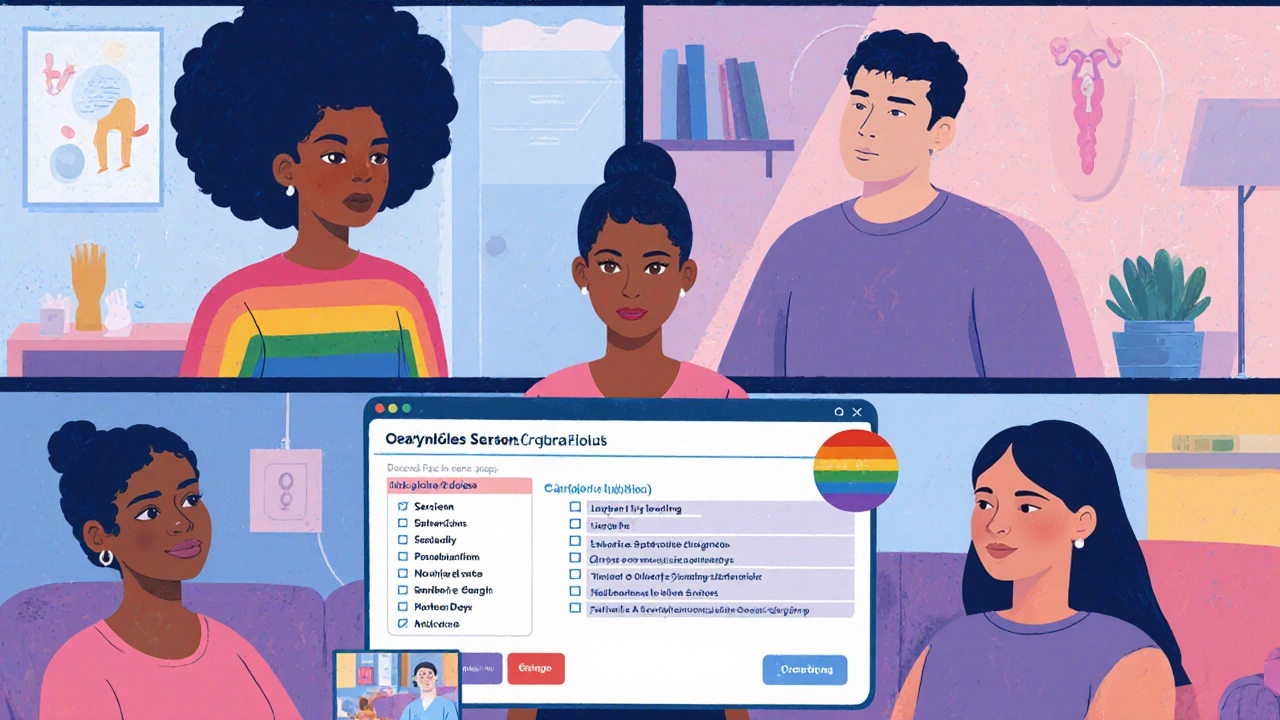
Unique Biological and Risk Factors
While ovarian cancer primarily affects cisgender women, several biological factors influence risk for LGBTQ+ individuals:
- BRCA1/BRCA2 Mutations genetic alterations that dramatically increase ovarian and breast cancer risk are equally prevalent across gender identities. However, many trans men are less likely to be referred for genetic testing because providers assume they no longer need it after gender‑affirming surgery.
- Hormone Therapy the use of exogenous estrogen or testosterone for gender affirmation can modify ovarian tissue. Testosterone may suppress menstruation, masking early symptoms, while estrogen in some gender‑affirming regimens could theoretically stimulate ovarian cells, though data are limited.
- Age at which hormone therapy begins matters; early initiation may alter ovarian physiology, making standard screening tools (like CA‑125 blood tests) less reliable.
- For intersex individuals with variations in sex development, atypical ovarian anatomy can complicate imaging and surgical planning.
Social and Healthcare Barriers
Beyond biology, systemic obstacles heavily impact outcomes:
- Discrimination unfair treatment based on sexual orientation or gender identity can cause patients to delay seeking care, fearing judgment or misgendering.
- Insurance Coverage the extent to which health plans pay for services, often tied to binary gender markers may refuse to cover procedures listed under “female reproductive health” when a patient’s legal gender is male.
- Health Disparities differences in health outcomes linked to social, economic, or environmental disadvantage manifest as longer wait times, fewer referrals to oncologists familiar with LGBTQ+ needs, and reduced access to clinical trials.
- Provider knowledge gaps mean many clinicians are uncomfortable discussing ovarian health with trans men, leading to missed opportunities for pelvic exams or imaging.
Mental Health Impact
Facing a cancer diagnosis is emotionally taxing for anyone, but LGBTQ+ patients often carry additional stressors-fear of discrimination, isolation from family, and lack of affirming support. Studies show that LGBTQ+ cancer survivors report higher rates of anxiety (up to 45%) and depression (around 38%) compared to cisgender heterosexual peers. Early integration of mental‑health services, especially those with LGBTQ+ cultural competence, can reduce distress and improve treatment adherence.
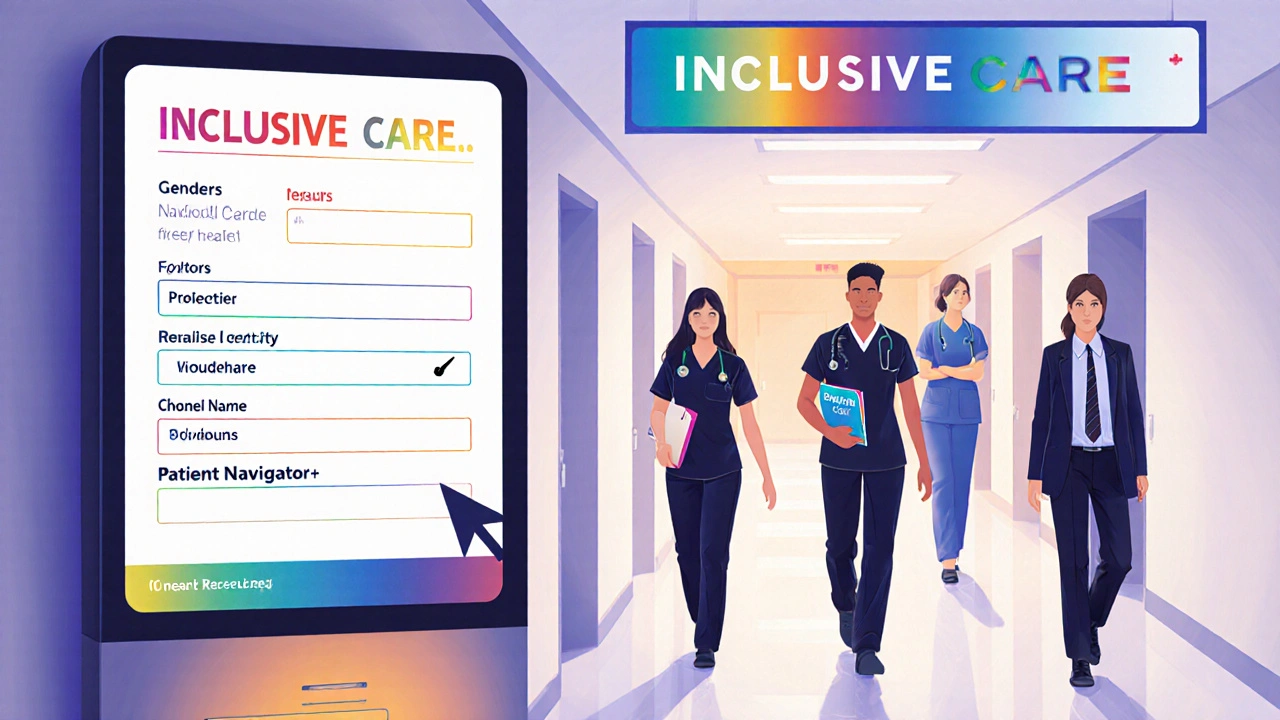
Support Resources and Best Practices
Finding the right help starts with knowing what’s out there. Below is a quick comparison of traditional ovarian‑cancer support versus LGBTQ+‑specific options.
| Aspect | Standard Support (Mostly Cisgender Women) | LGBTQ+‑Focused Support |
|---|---|---|
| Group Composition | Primarily cisgender women; gender‑specific language. | Mixed gender identities; inclusive language and pronoun usage. |
| Facilitator Training | General oncology counseling. | Facilitators trained in LGBTQ+ cultural competence and trauma‑informed care. |
| Healthcare Navigation | Standard insurance assistance. | Assistance with gender‑marker issues, hormone‑therapy coordination, and legal name changes. |
| Online Communities | Women’s health forums. | Dedicated LGBTQ+ cancer forums, e.g., Pride Cancer Network. |
| Peer Mentorship | Mentors who are cis women survivors. | Mentors who share gender identity or sexual orientation, offering relatable lived experience. |
Key take‑aways:
- Seek out support groups that explicitly state inclusive policies.
- If your provider’s clinic doesn’t have an LGBTQ+ liaison, ask for a referral to a patient‑navigator service.
- When discussing treatment plans, request that all documentation respects your chosen name and pronouns.
Practical Checklist for Patients and Providers
- Verify that your medical record lists your correct name, gender identity, and pronouns.
- Ask for a comprehensive risk assessment that includes BRCA1/BRCA2 genetic testing for hereditary cancer risk regardless of gender.
- Discuss any hormone‑therapy regimen with your oncologist; ask how it may affect imaging or lab results.
- Request referrals to LGBTQ+‑affirming support groups and mental‑health professionals.
- Confirm that insurance coverage extends to ovarian‑cancer treatment even if your legal gender is male; request an appeal if denied.
- Set up a patient‑navigator or advocate who understands both cancer care and LGBTQ+ health issues.
- Maintain a personal health journal noting symptoms, medication changes, and emotional wellbeing.
Building a More Inclusive Cancer Care System
Healthcare institutions can move from reactive to proactive by embedding inclusive policies:
- Train all staff on gender‑affirming language and the importance of using chosen names.
- Update electronic health records to capture gender identity separate from legal sex.
- Collect and publish disaggregated data on cancer outcomes by sexual orientation and gender identity.
- Partner with LGBTQ+ advocacy groups to co‑design patient education materials.
When providers earn patients’ trust, diagnosis timelines shorten, adherence improves, and overall survival rates climb.
Frequently Asked Questions
Can trans men still develop ovarian cancer?
Yes. Even after testosterone therapy or gender‑affirming surgery, many trans men retain ovaries and remain at risk. Regular pelvic exams and appropriate imaging are still recommended.
Does hormone therapy increase my ovarian‑cancer risk?
The evidence is mixed. Some studies suggest long‑term estrogen may raise risk, while testosterone’s impact is less clear. Discuss your specific regimen with an oncologist and consider regular monitoring.
What if my insurance denies coverage because my legal gender is male?
File an appeal citing anti‑discrimination laws and request a case review. Many UK NHS trusts and private insurers have policies covering gender‑affirming patients; a patient navigator can help you prepare the paperwork.
Are there LGBTQ+‑specific ovarian‑cancer support groups?
Yes. Organizations like the Pride Cancer Network, Cancer Support Community’s LGBTQ+ branch, and local hospice charities run monthly virtual and in‑person groups that focus on inclusive language and shared experiences.
How do I find an LGBTQ+‑friendly genetic counselor?
Search directories such as the LGBTQ+ Health Equality Index, ask your oncologist for referrals, or contact national genetics societies that list counselors with cultural‑competence certifications.




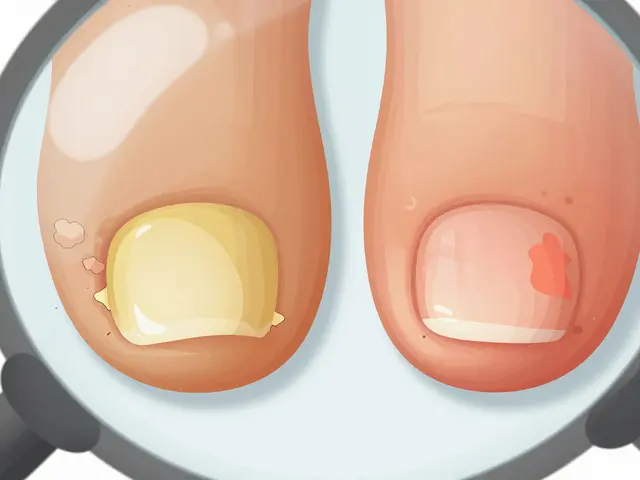
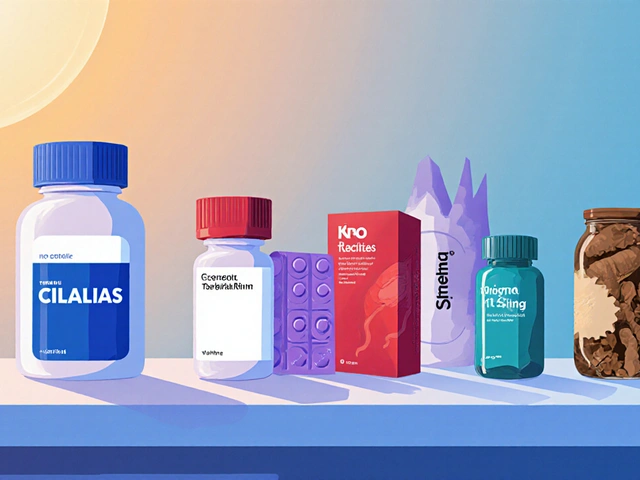
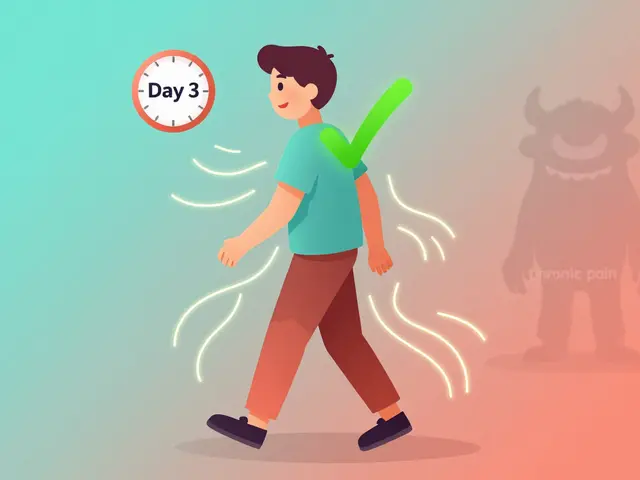
Frank Pennetti
October 14, 2025 AT 18:32